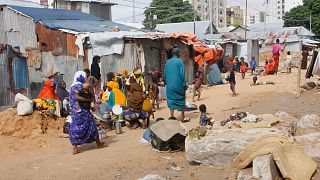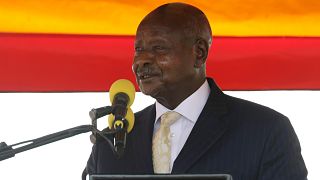Uganda
Makerere University students in Uganda have created a mobile application that provides smallholder farmers with real-time information on markets, the latest news on farming inputs and eliminates profit-sapping middlemen.
Ismail Katende took up farming two years ago. It wasn’t his dream job but it was a way to make a living when he couldn’t find employment.
Today, he is harvesting his latest crop of eggplants. He will market and sell them, right here, in the middle of his one-acre farm, thanks to a mobile application called AgroMarket Day.
He takes pictures of the produce on his phone and uploads them with details, price and a contact number then waits for a hit on the application, which is also available to buyers. He also regularly receives information on best farming practices and cheap inputs.
Katende says farming has been easier than he imagined. He makes about 200 U.S. dollars a month and is planning on expansion.
“This application gives me information on where to buy the right tools to use in the farm. It also directs me to the right products; the fertilizers, the herbicides and the pesticides to use in the garden. It even gives me the market for my products when they have ripened. So I use the application, I upload my products and I can sell them now using AgroMarket Day right from the farm or even I can take them to town but normally these days I sell right from the app, and then they come and get the produce from my farm,” he said.
AgroMarket Day is available on Android operated systems and can be downloaded from the Google Play store.
It was created by two students from Uganda’s Makerere University – Isaac Omiat, 25, and Lisa Katusiime, 24.
The race to develop mobile apps in Africa is spawning a new generation of techpreneurs, searching for innovative ways to connect various sectors with their respective clientele.
Dozens of apps are being created across the continent, to help bridge the infrastructure deficits, while helping to meet the aspirations of an increasingly tech-savvy African population.










01:45
Empowering youth in agriculture could boost global economy, FAO report says
02:07
Morocco explores its digital future at the 2025 Morocco Gaming Expo
01:00
Pix of the Day: July 3, 2025
01:45
From Uganda to NYC: Zohran Mamdani's rise in American politics
01:22
Ugandan-born Zohran Mamdani declares victory in New York Democratic mayoral primary
02:08
Gunman attack in north-central Nigeria: death toll climbs to 150